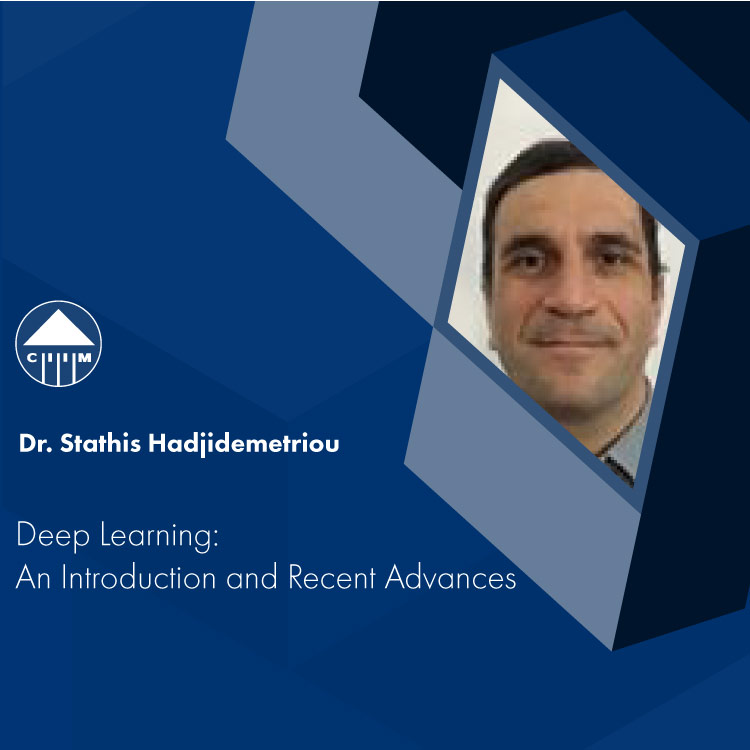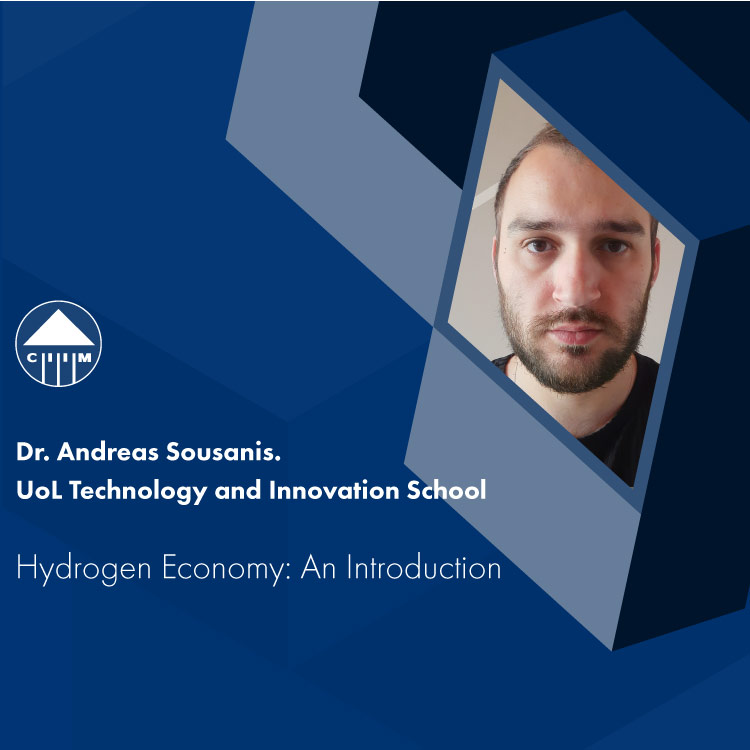Latest Past Research Seminars
Deep Learning: An Introduction and Recent Advances
Digital EventResearch Seminar 14:00 pm, Thursday, 29 June 2023 The talk will be provide a tutorial introduction to the basic building blocks of neural networks as well as their training and operation in the context of deep learning. It will also review modern deep learning tools and architectures. The application domains considered will be images, video, and natural language. It will conclude with a comparison to principled data analysis and with future prospects. About the speaker Dr. Stathis Hadjidemetriou is an associate professor of the department of Information Technology. He has studied computer science and engineering. He received a B.Eng. (Honours) in [...]
Government Spending and Individual’s Expectations. Evidence from Micro Data
CIIM Nicosia 21 Glafkou Kleride Avenue, AglandjiaResearch Seminar 15:30 pm, Friday, 25 May 2023 Fiscal policy has a significant impact on economic decisions, both at the individual and firm levels. Particularly, changes in taxation and government spending affect consumer spending, investment, job creation, and profitability. However, the impact of fiscal policy is still highly debatable, both from theoretical and empirical perspectives. In this paper, we focus on individuals’ financial expectations and examine directly the impact of government spending changes on individual economic behaviour. We explore whether households form optimistic or pessimistic financial beliefs following changes in fiscal policy via welfare payments. We find evidence of the households' confidence in the [...]
Hydrogen Economy: An Introduction
Digital EventResearch Seminar 15:30 pm, Thursday, 27 April 2023 The hydrogen economy is a concept that describes a future in which hydrogen becomes a major energy carrier for the world's economy, replacing fossil fuels and reducing greenhouse gas emissions. Hydrogen is a clean and versatile fuel that can be produced from a variety of sources, including water and renewable energy sources such as solar and wind power. The use of hydrogen in transportation, heating, and power generation has the potential to reduce greenhouse gas emissions and mitigate climate change. However, the transition to a hydrogen economy presents significant technical, economic, and social [...]




